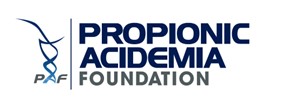Currently Recruiting Clinical Trials/Studies For Propionic Acidemia
NIH Natural History, Physiology, Microbiome and Biochemistry Studies of Propionic Acidemia
This study will evaluate patients with propionic acidemia to learn more about the genetic and biochemical causes and the medical complications associated with it. They also plan to study how bacteria living in our gut (microbiome) can affect the course of propionic acidemia.
Open Label Study of mRNA-3927 in Patients With Propionic Acidemia
This is a Phase 1/2 study sponsored by Moderna TX, Inc. It is designed to evaluate if an investigational treatment called mRNA-3927 is safe and effective in reducing the symptoms of PA in individuals one year of age and older. mRNA 3927 is an investigational intravenous (IV) infusion treatment that instructs a persons’ body to make a PCC enzyme that works.
Study is recruiting at the following sites:
United States:
- David Geffen School of Medicine UCLA
- Johns Hopkins Hospital
- Boston Children’s Hospital
- University of Michigan
- Icahn School of Medicine at Mount Sinai – Clinical Research Unit
- Duke University Medical Center
- Cincinnati Children’s Hospital
- Children’s Hospital of Philadelphia
- Texas Children’s Hospital
Canada:
- Hospital For Sick Children
United Kingdom:
- University Hospital Birmingham NHS Foundation Trust
- Great Ormond Street Hospital (GOSH)
Review of Charts From Amish/Mennonite Variant PA Patients
The study is designed to provide a comprehensive description of the clinical and biochemical features of propionic acidemia, Amish/Mennonite variant (PA-AMV).
Recruiting at Children’s Hospital of Pittsburgh
DISCLAIMER
Propionic Acidemia Foundation website is designed for educational purposes only and is not intended to serve as medical advice. The information provided on this site should not be used for diagnosing or treating a health problem or disease. It is not a substitute for professional care. If you suspect that you or your children may have Propionic Acidemia, you should consult your health care provider. Any potential therapy should be thoroughly discussed with your medical provider. The Propionic Acidemia Foundation does not recommend nor endorse any particular products, therapeutics, companies, or manufacturers.





